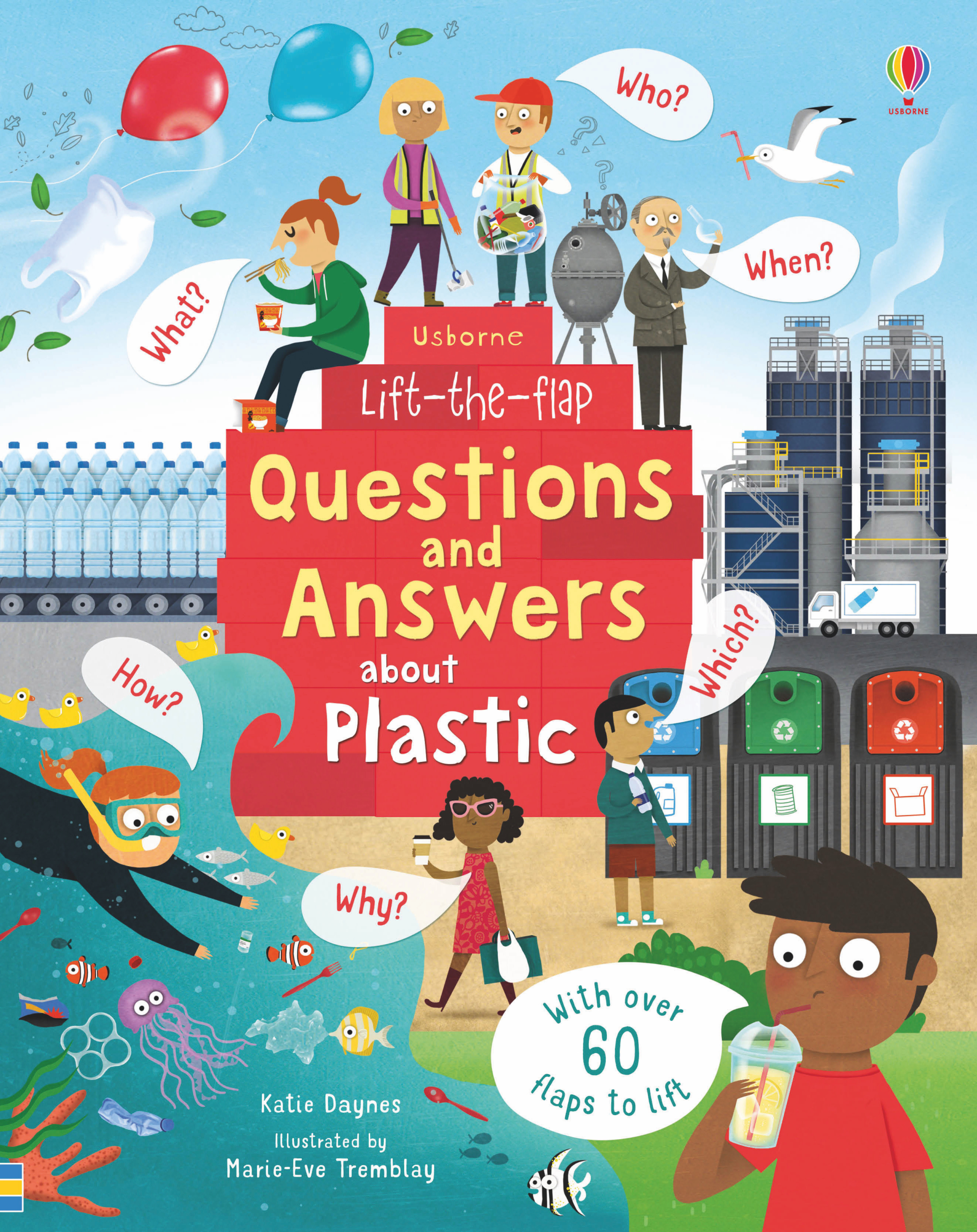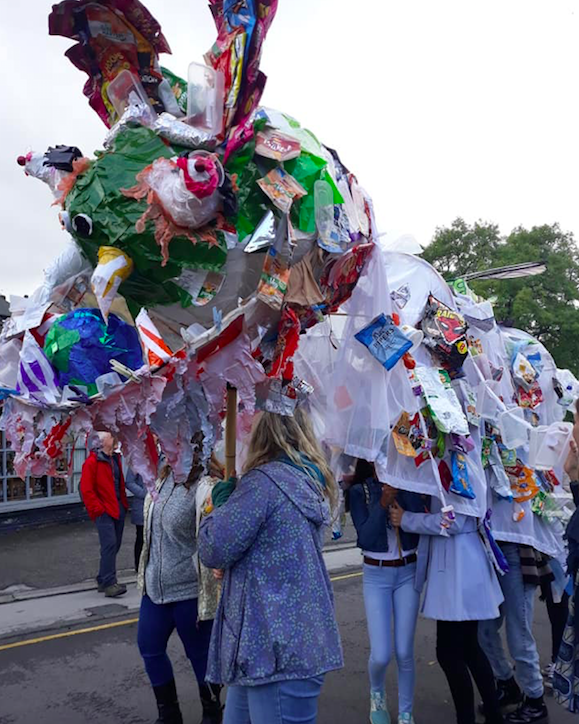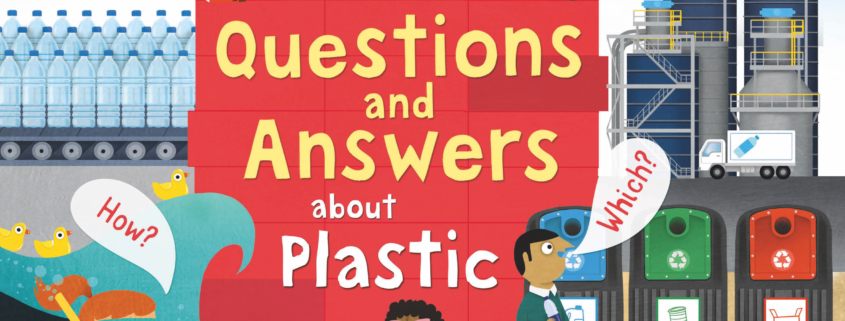The story of plastic – NSSM2020
Guest Post by Katie Daynes

Have you had a plastic ‘penny drop’ moment? A moment when you realised how totally bonkers it is to take something that will last for hundreds of years, use it only once, then throw it away? Perhaps you’ve had a plastic OUTRAGE moment when you’ve seen an image of an animal being choked by plastic litter, and thought ‘Why are people so careless?’ For me, those two moments happened quite close together and left me feeling that I MUST DO SOMETHING ABOUT THIS.
Five years ago, I would have scoffed at the idea of writing a children’s flap book based entirely on questions about plastic. I mean, how could you fill a whole book on the subject? And who would ever want to read it?! Now I can safely say it’s one of the most fascinating, shocking and important books I’ve ever written.
If I’d been writing a fiction book, it would have been tempting to have made Pesky Plastic the baddy, with some exciting chase scenes and Pesky Plastic safely trapped in a bin by the end. However, in the TRUE story of plastic – the non-fiction version – plastic was never meant to be the bad guy…
Plastic was actually invented to SAVE wildlife. Elephants and tortoises were being killed for their ivory tusks and shells so that people could have ornate combs and hair-slides, piano keys and billiard balls. There was a competition to invent a man-made substance that would come to the rescue. Various versions of plastic were trialled and the most successful ones soon took off. Even the evil plastic bag, now banned in many countries, was originally invented to do good in the world and replace the paper bags that came from chopping down trees.

Plastic Monster
Sadly, plastic’s major selling points – its durability, versatility and cheap production costs – are also why it’s causing so many problems around the world. It’s being churned out to package everything from toothpaste and water to crisps and cucumbers, but it can’t biodegrade and return to nature so it’s polluting our land and sea instead. Plastic litter has been found on even the remotest beaches, and traces of plastic have been found in every sea creature that’s been tested.
This doesn’t mean all plastic is bad. Far from it. Plastic lenses in my glasses mean I can see properly, plastic bike helmets protect us if we fall, life-saving blood and medicine can be delivered to patients thanks to plastic pouches and plastic tubes… It’s when we stop VALUING plastic and see it as something we can use just once then THROW AWAY that it becomes a problem.
While researching and writing Questions & Answers about Plastic I became increasingly depressed by the litter surrounding me in my local area, and just how difficult it was to buy things NOT wrapped in plastic. I decided the only way to cheer myself up was to roll my sleeves up and TAKE ACTION.
Along with some like-minded friends, we set up Plastic Free Skipton, supported by the national campaign group Surfers Against Sewage. (Surfers were among the first to notice that plastic was the new sewage, threatening the health of our oceans.) Together, we’ve organised litterpicks, talks and zero waste picnics. We’ve promoted local shops and cafes who are offering refills and plastic-free alternatives. We’ve helped the local secondary school fundraise for water fountains, so that students and staff can easily refill their own bottles rather than buy disposable bottles day after day. We even created a magnificent, Earth-gobbling plastic waste monster, to take part in the town’s biennial Puppet Festival Parade.
I’m a strong believer in the ripple effect. Small actions can have a big impact. No one is too small to make a difference. Greta Thunberg is amazing. In these crazy times, it’s important to believe in a better future, to try to understand the problems and to want to be part of the solution.
If you’d like to make a difference today, here are some suggestions:
- Take a refillable water bottle around with you, rather than buying bottled water.
- Do a litterpick.
- Remember to take your own bags when shopping.
- Buy loose fruit and veg.
- Store food in reusable containers rather than single-use bags or clingfilm.
- Use a bar of soap rather than shower gel from a plastic bottle.
- Bake your own cookies or flapjacks instead of buying plastic-wrapped snacks.
- Tell others to do the same.
Plastic isn’t the big baddy in this story. If we can change the way we’re using plastic, maybe its story can still have a happy ending.
Any opinions expressed in this post may not truly reflect those of the FCBG.




Leave a Reply
Want to join the discussion?Feel free to contribute!